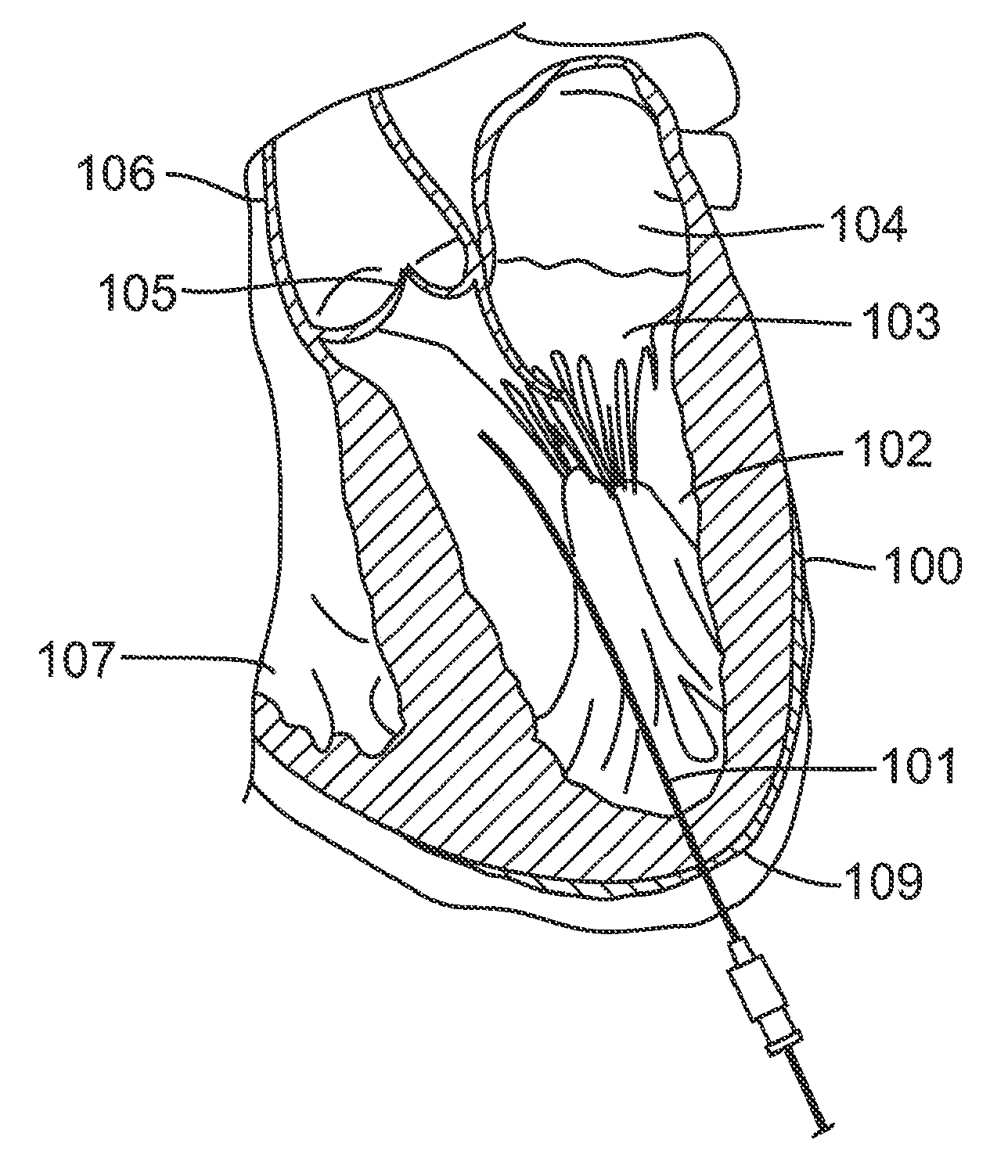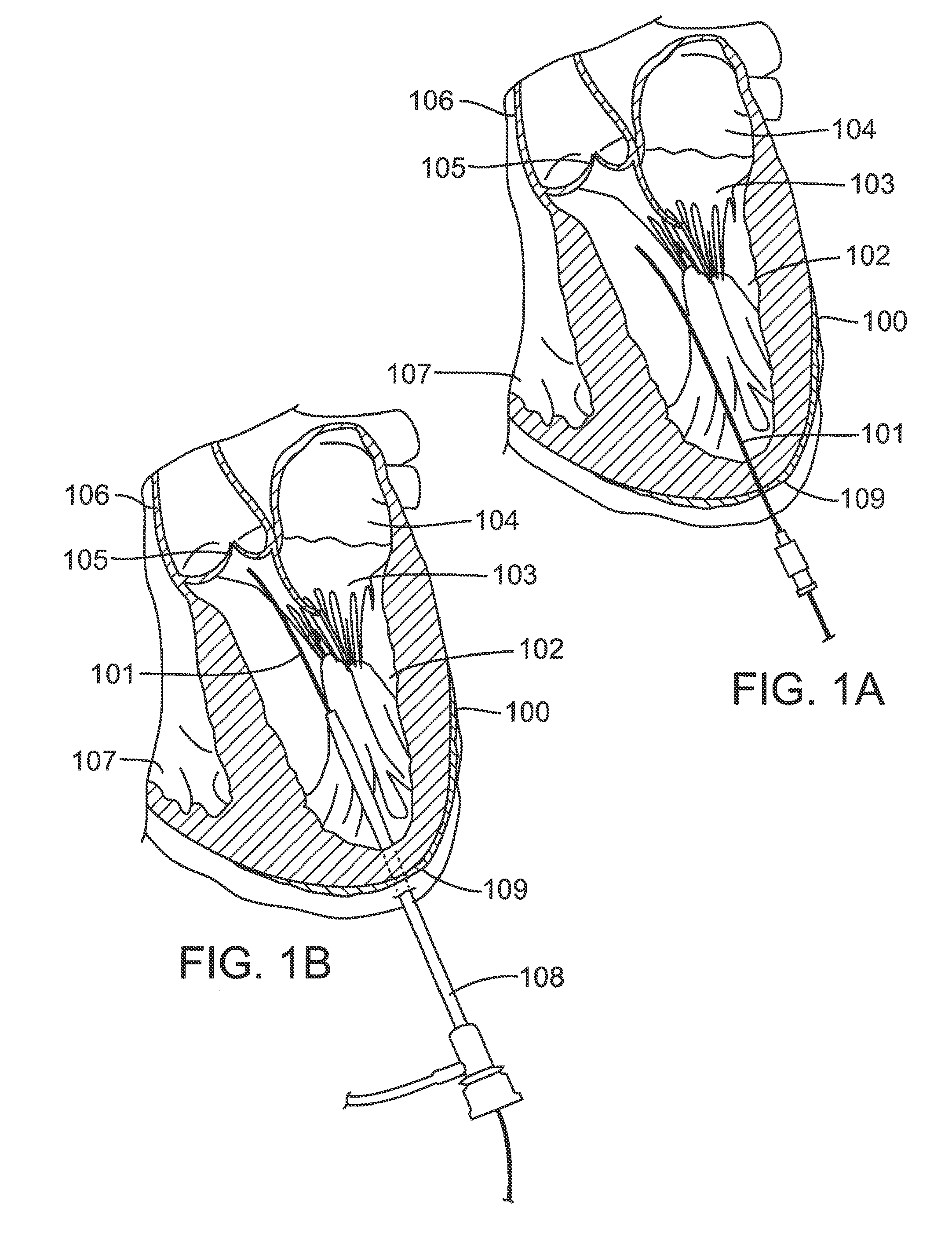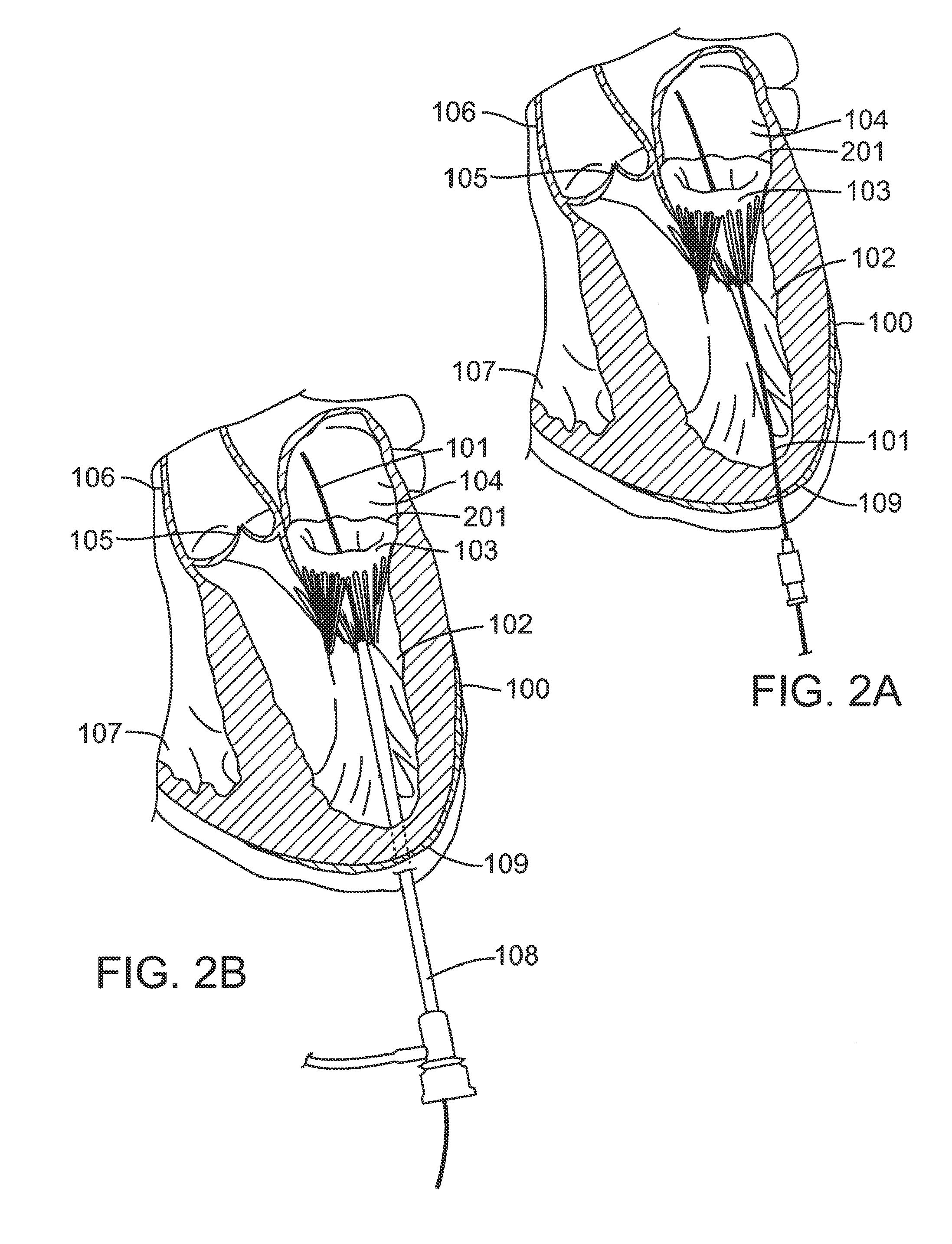Percutaneous interventional cardiology system for treating valvular disease
a technology of interventional cardiology and valvular disease, which is applied in the field of system for treating valvular disease, can solve the problems of not being considered minimally invasive for open heart surgery, affecting the quality of life of patients, and increasing the complications of vascular access, so as to and reduce the risk of oozing
- Summary
- Abstract
- Description
- Claims
- Application Information
AI Technical Summary
Benefits of technology
Problems solved by technology
Method used
Image
Examples
Embodiment Construction
[0024]As shown in FIG. 1A, a needle 101 can be inserted into the left ventricle 102 of the heart 100 via the left ventricular apex wall of the heart 109. Needle 101 can be inserted percutaneously or minimally invasively via a mini thoracotomy to allow direct needle insertion access to the heart. Also illustrated for context in FIG. 1 are left atrium 104, mitral valve 103, aorta 106, aortic valve 105 and right ventricle 107. As shown in FIG. 1B, once needle 101 has been inserted into left ventricle 102, a catheter 108 can be inserted through the hole created by the needle 101. For example, a small (e.g. 4 or 6-French catheter) can be inserted and then a time period can pass until hemostasis is obtained so that there is no bleeding around the outside of the heart. Then, similar to a femoral artery approach, one can dilate to a larger size catheter (e.g. up to 36-French for valvular therapy, such as therapy for the aortic valve). As shown in FIG. 2A, needle 101 can be inserted into the...
PUM
 Login to View More
Login to View More Abstract
Description
Claims
Application Information
 Login to View More
Login to View More - R&D
- Intellectual Property
- Life Sciences
- Materials
- Tech Scout
- Unparalleled Data Quality
- Higher Quality Content
- 60% Fewer Hallucinations
Browse by: Latest US Patents, China's latest patents, Technical Efficacy Thesaurus, Application Domain, Technology Topic, Popular Technical Reports.
© 2025 PatSnap. All rights reserved.Legal|Privacy policy|Modern Slavery Act Transparency Statement|Sitemap|About US| Contact US: help@patsnap.com



